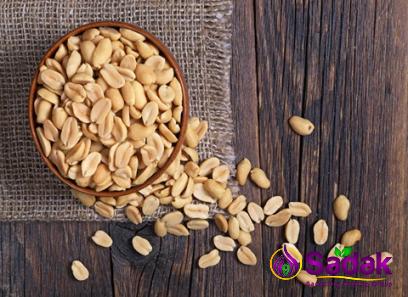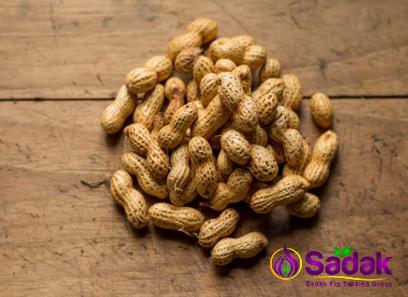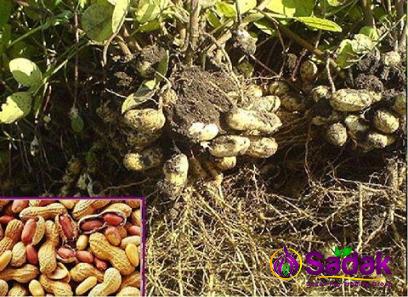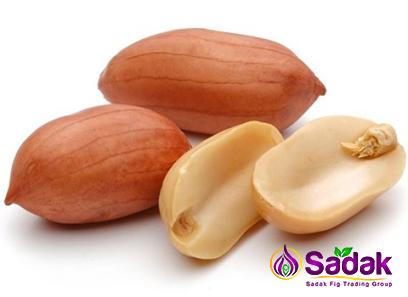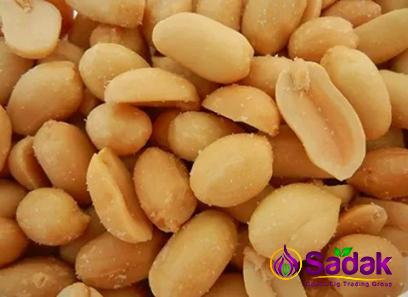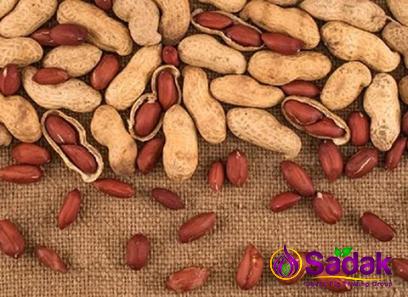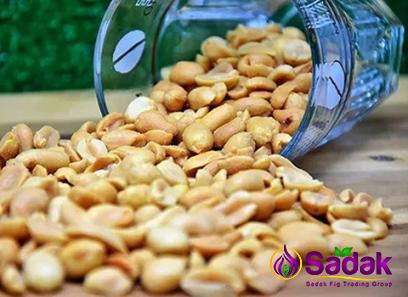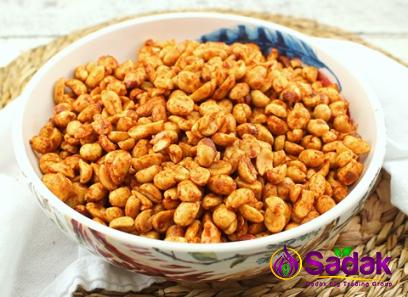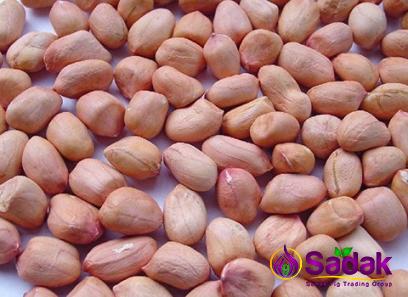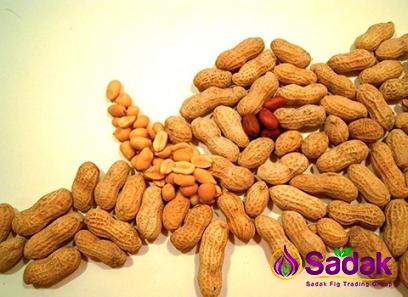Pistachios are one of the most popular and nutritious nuts enjoyed worldwide. They are not only a delicious and versatile snack but also offer numerous health benefits. Among the various varieties available, Turkish and Iranian pistachios are highly revered for their distinct qualities and flavors. This article aims to provide a comprehensive comparative analysis of Turkish and Iranian pistachios, including their geographical origin, cultivation methods, flavor profile, nutritional composition, and market reputation.
Geographical Origin and Cultivation Methods:
Turkish Pistachios:
Turkey is widely recognized as one of the largest producers and exporters of pistachios globally. The main growing regions in Turkey are Gaziantep, Siirt, Şanlıurfa, and Mardin. Turkish pistachios are primarily cultivated under dry Mediterranean climate conditions and rugged terrains. The harvest season typically begins in early September and lasts until late October. Turkish pistachios primarily belong to the Antep variety, characterized by their bright green color, relatively large size, and elongated shape.
Iranian Pistachios:
Iran, with its diverse climate and suitable agricultural conditions, is the leading producer and exporter of pistachios globally. The main growing regions in Iran include Kerman, Rafsanjan, and Yazd. Iranian pistachios are cultivated under a wide range of climate conditions, including desert, hilly, and mountainous areas. The harvest season typically starts in September and extends until November. The most prominent varieties of Iranian pistachios include Akbari, Ahmad Aghaei, Fandoghi, and Kalleh Ghouchi. Each variety has its unique flavor, appearance, and market demand.
Flavor Profile:
Turkish Pistachios:
Turkish pistachios are renowned for their rich, distinct, and complex flavor profile. They are known to have a slightly sweet and buttery taste with some hints of earthiness and mild bitterness. This distinctive flavor is often attributed to the unique climate, soil composition, and cultivation techniques employed in Turkey. The Antep variety particularly stands out for its intense and flavorful taste, making it a preferred choice for many pistachio connoisseurs.
Iranian Pistachios:
Iranian pistachios are highly regarded for their exceptional flavor and aroma, which sets them apart from other varieties. The taste of Iranian pistachios varies depending on the specific variety. The Akbari variety, for instance, is known for its nutty and buttery flavor with a hint of sweetness. On the other hand, Fandoghi and Ahmad Aghaei pistachios are generally sweeter and have a more delicate taste. Iranian pistachios are loved for their rich and satisfying flavor profile, making them a popular choice for both snacking and culinary purposes.
Nutritional Composition:

Both Turkish and Iranian pistachios offer a plethora of health benefits due to their impressive nutritional composition. They are packed with essential vitamins, minerals, antioxidants, and healthy fats.
Turkish Pistachios:
Turkish pistachios are known for their high protein content, providing a valuable source of plant-based protein. They are also rich in dietary fiber, which aids in digestion and contributes to satiety. Additionally, Turkish pistachios offer a balanced profile of healthy fats, including monounsaturated and polyunsaturated fats, which are beneficial for cardiovascular health. They are a good source of vitamins such as vitamin B6, thiamin, and vitamin E, as well as important minerals like potassium, magnesium, and phosphorus.
Iranian Pistachios:
Similar to Turkish pistachios, Iranian pistachios are a nutrient-dense snack. They contain essential amino acids, making them a complete source of protein. Iranian pistachios are also rich in dietary fiber, enabling good digestive health and aiding in weight management. These nuts are a good source of vitamin E, a powerful antioxidant that helps protect cells from oxidative damage. Additionally, they provide minerals such as potassium, phosphorus, and magnesium, which are essential for maintaining optimal body functions.
Market Reputation:
The global pistachio market is highly competitive, with both Turkish and Iranian pistachios commanding a significant share. The market dominance of these two countries is influenced by factors such as quality, taste, yield, and pricing. Turkish pistachios have gained recognition for their exceptional taste and are often preferred by consumers who appreciate their vibrant flavors and robust crunch. Turkish producers have also focused on promoting the quality and authenticity of their pistachios, further enhancing their market reputation.
On the other hand, Iranian pistachios have established a strong presence in international markets due to their superior quality, consistent supply, and wide range of varieties. Iran’s long history and expertise in pistachio cultivation have contributed to their exceptional product quality and reputation. Iranian pistachios are known for their size, flavor, and distinctive appearance. They enjoy a significant share in both the global snack nut and ingredient markets.
Conclusion:
Turkish and Iranian pistachios are two prominent varieties that have garnered global recognition for their distinct qualities, flavors, and nutritional benefits. While Turkish pistachios are coveted for their rich taste and texture, Iranian pistachios are valued for their exceptional flavor profiles and wide variety. Both varieties offer significant health benefits due to their impressive nutritional composition. Whether you choose Turkish or Iranian pistachios, you can indulge in the delectable taste and reap the numerous health advantages offered by these delicious nuts.I. Production and Supply Chain:
Turkish Pistachios:
Turkey is known for its well-established pistachio production and supply chain. The country has invested in modern farming practices, infrastructure, and technology to ensure the efficient cultivation and processing of pistachios. Turkish pistachio farmers adhere to strict quality control measures to maintain consistent quality throughout the production process. The supply chain is well-organized, with excellent transportation networks allowing for prompt delivery of the nuts to domestic and international markets.
Iranian Pistachios:
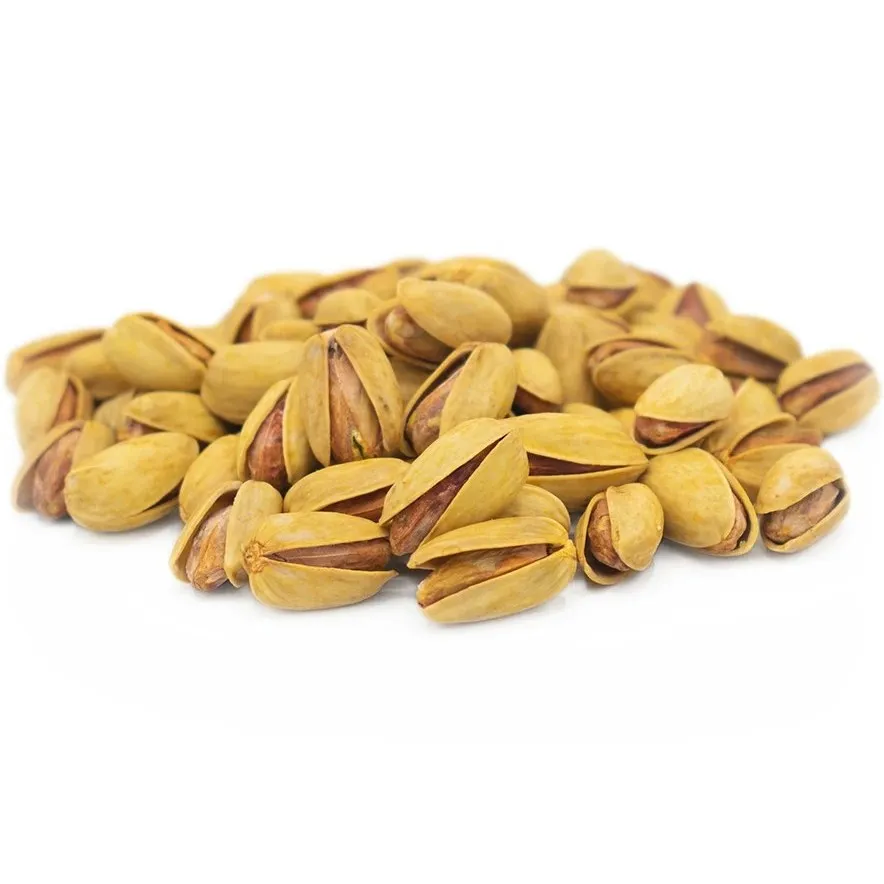
Iran has a long-standing tradition and expertise in pistachio cultivation. The country boasts a well-developed supply chain system, which includes local farmers, cooperatives, and processors. Iranian pistachio farmers utilize traditional techniques combined with modern agricultural practices to produce high-quality nuts. The government plays a significant role in regulating and promoting the industry, ensuring standardized quality and facilitating export processes.
II. Global Demand and Consumption:
Turkish Pistachios:
Turkish pistachios have gained popularity in both domestic and international markets. The unique flavor, vibrant green color, and excellent quality have made them a preferred choice among consumers. The demand for Turkish pistachios has been steadily increasing in various regions, including Europe, North America, and Asia. These nuts are commonly consumed as a snack, used in bakery products, confectioneries, and in the production of pistachio butter and oil.
Iranian Pistachios:
Iranian pistachios have a strong global demand and are widely consumed in different parts of the world. They have earned a reputation for their superior taste, quality, and versatile application in various cuisines. The major export destinations for Iranian pistachios include the United States, European Union countries, and countries in the Middle East and Asia. Iranian pistachios are often consumed as a snack, used in desserts, ice creams, and pastries, and are a popular choice for garnishing in gourmet dishes.
III. Price and Market Competition:
Turkish Pistachios:
The pricing of Turkish pistachios is influenced by various factors, such as the quality grade, crop yield, and global market conditions. While Turkish pistachios may be slightly more expensive compared to other varieties, consumers are willing to pay a premium for their superior taste and quality. Turkish producers focus on maintaining a competitive edge by emphasizing the unique flavor and authenticity of their pistachios. They have successfully positioned their products as a premium offering in the market.
Iranian Pistachios:
Iranian pistachios are known for their comparatively competitive pricing. They offer an attractive price-quality ratio, making them a popular choice among consumers and businesses. Iran’s large-scale pistachio production allows for economies of scale, enabling producers to offer competitive prices without compromising on quality. The availability of different varieties with varying price points also contributes to their market competitiveness.
IV. Export Markets and Regulations:
Turkish Pistachios:
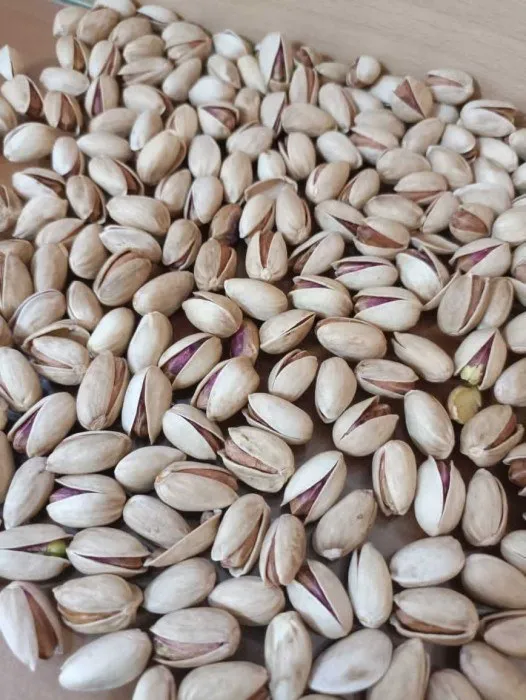
Turkey is a major exporter of pistachios, with a significant share in the global market. Turkish pistachios are exported to over 80 countries around the world. The Turkish government promotes and supports the pistachio industry through export incentives, trade fairs, and collaborations with international partners. However, export regulations, including quality inspections and certifications, ensure that only top-quality pistachios are exported to maintain the reputation of Turkish pistachios in the global market.
Iranian Pistachios:
Iran dominates the global pistachio market with a substantial share in exports. Iranian pistachios are highly sought after due to their premium quality. The Iranian government plays a significant role in regulating the export of pistachios to ensure compliance with international standards. Exporters must obtain necessary certifications and comply with stringent quality control measures to meet the requirements of global markets. The country’s extensive trade relations and marketing strategies have helped establish a strong presence in key export destinations.
V. Market Trends and Consumer Preferences:
Turkish Pistachios:
In recent years, there has been a growing trend of consumers seeking healthier snack options, which has benefited Turkish pistachios. As consumers become more health-conscious, pistachios are gaining popularity as a nutritious alternative to traditional snacks. The unique flavor, nutritional benefits, and versatility of Turkish pistachios appeal to health-conscious and discerning consumers. Turkish producers have recognized this trend and are continually developing innovative products and marketing strategies to cater to changing consumer preferences.
Iranian Pistachios:
Iranian pistachios have a strong market presence due to their exceptional flavor, quality, and versatility in culinary applications. The global demand for natural, organic, and premium food products has provided an opportunity for Iranian pistachios to flourish. Consumers are increasingly seeking high-quality, gourmet ingredients, and Iranian pistachios fit well into this trend. Additionally, the rising popularity of Middle Eastern and Mediterranean cuisine has contributed to the increased consumption of Iranian pistachios.
VI. Sustainability and Environmental Impact:
Turkish Pistachios:
Turkey places great importance on the sustainable cultivation and harvesting of pistachios. The country has implemented irrigation systems, water management techniques, and soil conservation measures to minimize the environmental impact of pistachio farming. Turkish farmers adhere to responsible agriculture practices to preserve natural resources, reduce waste, and protect biodiversity. Sustainability certifications and adherence to international environmental standards further highlight Turkey’s commitment to sustainable pistachio production.
Iranian Pistachios:
The Iranian pistachio industry is also committed to sustainable agriculture practices. Iranian farmers prioritize water conservation and efficient irrigation methods to mitigate the environmental impact of pistachio farming. The use of organic fertilizers and pest control measures reduces reliance on chemicals and promotes sustainable farming techniques. The Iranian government supports initiatives to protect the natural environment through research and development, product innovation, and sustainability programs in close collaboration with farmers and industry stakeholders.
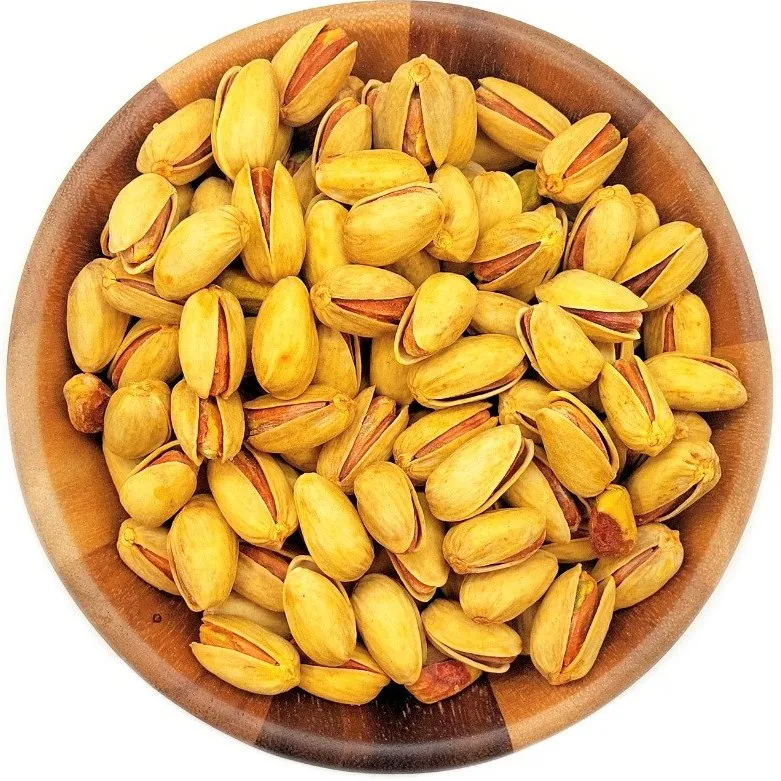
Conclusion:
Turkish and Iranian pistachios are both renowned for their exceptional quality, distinct flavors, and nutritional benefits. While Turkish pistachios boast a rich, complex taste and position themselves as a premium offering, Iranian pistachios are known for their superior flavor profiles and competitive pricing. These varieties cater to different consumer preferences and find their place in global markets based on their unique qualities. Whether you choose Turkish or Iranian pistachios, you can indulge in the delectable taste and enjoy the numerous health advantages offered by these remarkable nuts.
